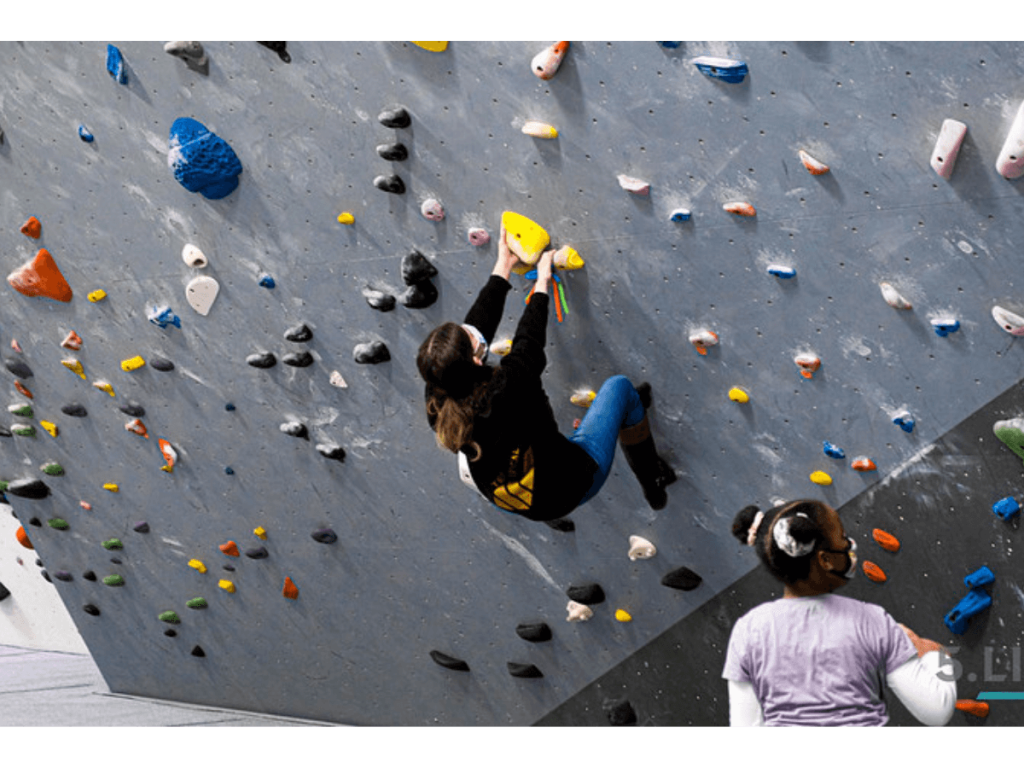Bouldering is a climbing discipline that uses cushioned pads instead of ropes and usually reaches heights of only 8 to 12 feet rather than 25 to 65 feet. It requires solving problems, thinking outside the box, overcoming fear, and pushing yourself physically. It presents an endless opportunity for challenge, fun, and creativity for kids, making it the perfect activity to benefit your kids’ physical and mental health. The rest of this article will explore the physical and psychological health benefits of children routinely bouldering!
Bouldering Benefits for Your Kids’ Physical Health

- Improves sleep
Every parent loves a child who is tired at night and sleeps soundly. It improves the parent’s sleep quality and makes everyone happier the next day. Bouldering is a physically demanding support because the climber relies on their strength, with no assistance from ropes, to make it to the top. The bottom line is that the kids will hit their pillows exhausted after a bouldering session.
- Builds strength
Bouldering is a full-body exercise that requires a strong core, legs, arms, forearms, and hands. You’ll find kids developing more and more strength as they progress. And because the strength they develop is relative to their body weight, it carries over into everyday life, helping them play and live injury-free.
- Builds body awareness
Bouldering also hones body awareness as each climber must learn to properly fall and maneuver their body through space, especially on dynamic movements. Other sports that provide this benefit include gymnastics, diving, and dancing. Many gymnasts make strong climbers because they have such fine-tuned body awareness. But, if your kids don’t enjoy other sports, bouldering might be the sport for them, primarily because of the mental benefits (i.e., problem-solving and creativity).
Bouldering Benefits for Your Kids’ Mental Health
- Increased ability to problem-solve
The official climbing term for a boulder is a ‘problem.’ That is because the climb is a series of challenging moves strung together, often most easily achievable by figuring out a specific path through the holds. While multiple ways exist to reach the top, some might work less effectively than others, depending on the kid’s strengths and weaknesses. If one method doesn’t work for them, it presents an opportunity for them to think of other ways to use the holds that will keep them on the wall versus falling.
- Increased patience
Successfully problem-solving can take time. It may even take multiple days, weeks, or months to try the climb. Whether figuring out how to do the moves, developing an alternative beta, or building the strength required to execute the movements, sending a boulder requires patience. If the kids don’t have the patience initially, the process will help them build patience.
- Increased perseverance
Alongside patience comes perseverance. You will generally fall more times than you succeed in bouldering and climbing. Thus, you must learn to love the process and keep trying. It’s like the age-old saying, “If at first you don’t succeed, try again.” That’s climbing in a nutshell. For children, it may be easy to want to give up. Failing is uncomfortable, but learning to see it as an opportunity to grow and keep trying rather than as a reason to give up is an essential skill for children to learn.
- An encouraging community
Community is essential for mental health; an encouraging community that lifts you is foundational to mental well-being. The rock climbing community is a kind and encouraging community that will provide your kids with a second home, a place they feel comfortable returning to time and time again. As they learn to be more patient and persevere through challenges, they’ll make friends who help them get through the challenges, problem-solve, and have fun.
Rock climbing and bouldering are for everyone, kids included. The benefits it offers extend far beyond what this article can summarize. Hopefully, this brief look into the physical and mental health benefits gives a glimpse and encourages you to take your kid’s bouldering. The sport’s benefits will become more impactful with time, so the more they can boulder, the better. You may find yourself climbing alongside them to reap the same benefits. If you have any further questions or comments about this topic, please don’t hesitate to submit them below!

Recent Comments